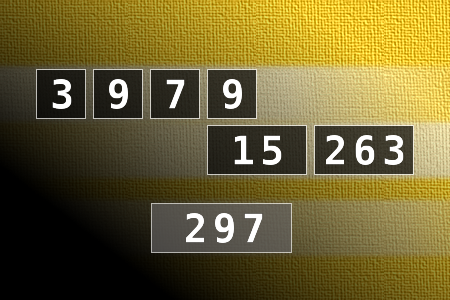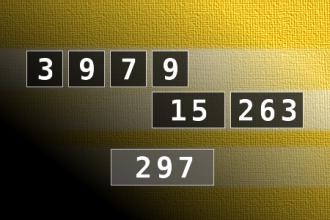Calculate the number 297
NUMBERMANIA: Calculate the number 297 using numbers [3, 9, 7, 9, 15, 263] and basic arithmetic operations (+, -, *, /). Each of the numbers can be used only once.Correct answers: 38
The first user who solved this task is Eric Mosqueda.
#brainteasers #math #numbermania


